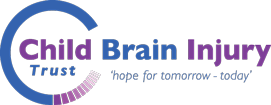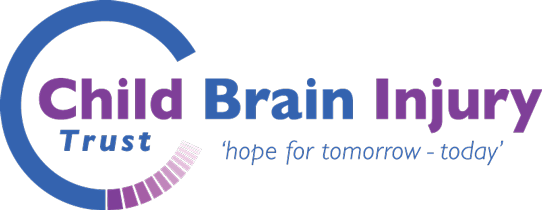The Child Brain Injury Trust invites guest bloggers to write about their personal experiences. The charity is not responsible for the content of the blog, but respects the authors’ perspective. This blog was written by Paula Barnes, a Partner at Moore Blatch Solicitors.
It is now some nearly 18 months since we were promised radical reforms to the approach to be used for the delivery of Health and Social Care packages to Children and Young people living with a disability in the light of the Health and Social Care Act 2012.
The Health and Social Care Act 2012 was part of the Government’s vision to modernise the NHS. Its aim was to ensure that the NHS was built around patients, led by health professionals and focused on delivering healthcare outcomes.
The Act allowed Clinical Commissioning Groups and the NHS Commissioning Board from 1 April 2014 for the first time to make direct payments to individuals for health care in the form of a personal health budget. The Act also provided for the integration of health and social care services and a collaborative approach to assessment of needs and service delivery.
We were promised a new approach with integration of assessments for Health and Social Care; Joint care planning and collaboration; the availability of Personal Health Budgets and identification of needs and fixing budgets for Health and Social Care to be paid by way of direct payments.
The Department of Health’s vision we were told was for personal health budgets to enable people with long term health conditions and disabilities to have greater choice, flexibility and control over the health care and support they received.
So is it the success story we were promised? Sadly no. In my view there remains a total lack of public awareness regarding the legal framework and entitlement of those living with a disability to NHS Continuing Care and Personal Health Budgets. We are told only 5,000 – 6,000 assessments are still carried out annually in the UK for children and young people. And yet we are told that around 40,000 children in the UK suffer a brain injury each year.
Brain injury in a child or young person can lead to significant disability and result in a primary health need. The figures do not add up. If there are 40,000 brain injury cases a year why are there only 5,000 assessments?
Sadly as a practitioner in the field of Public law and healthcare we still see too often a refusal on the part of many CCG’s and Social service teams to offer a truly integrated approach to the delivery of health and social care. It remains an uphill struggle.
Take the case of James an eight year old boy with serious and complex health and social care needs. James suffered from a range of health conditions, including epilepsy, dystonic cerebral palsy and severe learning difficulties. As a result, he required round the clock specialist care.
In 2013, the Clinical Commissioning Group (“the CCG”) accepted that James was eligible for Continuing Healthcare. The County Council assessed him as requiring a care package of 150 hours per week. He received this care without charge, funded 50% by the CCG and 50% by the Council (25% by the Council’s Social Services Department and 25% by the Council’s Education Department).
James needs did not decrease or change in any way and remained as acute as they were when NHS Continuing Care funding was awarded. If anything his care needs increased due to the need for a complex ketogenic diet and the breakdown of his parents’ marriage which meant that his mother was caring for him alone at the same time as his 2 year old sister. James was hypersensitive to noise, meaning he often could not be in the same room as his sister, creating serious practical difficulties for his mother when caring for them.
On 8 August 2014, the CCG informed mum that James no longer qualified for continuing healthcare. It recommended that James care package should be reduced to approximately 50% of its previous level. Immediately, the Council informed mum that it too had reassessed James needs and believed following a review that he only required 50% of the package he had previously received.
Neither the CCG nor LA acknowledged that they were downgrading their assessment of James needs from the previous year, or gave any reason that would justify their U-turn. The CCG had not consulted with mum before taking its decision.
As a result of the decisions made by the CCG and LA mum was left having to care for both her children alone through waking nights three times each week and in addition having to assist the carers throughout the day, as their double up time was removed. This required a gruelling full-time caring regime, which required her to stay awake for 36 hours straight three times a week, undertaking complex caring tasks. She felt unable to provide a safe level of care to both children.
With the support of the Legal Aid agency and public funding an application was issued in the High Court of Justice seeking Judicial Review of the decisions made by both the LA and CCG with arguments that their unexplained changes of position were unlawful as they were:
(1) not explained by adequate reasons;
(2) irrational in light of the continuity in the level of James’s caring needs; and
(3) an unlawful breach of mum’s legitimate expectation that the CCG and LA would apply their criteria consistently each year unless they published a new policy.
It was also alleged that the CCG’s decision was further unlawful, because it was procedurally unfair, due to the CCG’s failure to consult; it was alleged that the care situation was unsafe and unsustainable. Mum felt that she was at breaking point. An application was therefore made for urgent interim relief. Specifically, we invited the Court to order (a) that James receive a care package at the level he received prior to the review until the claim was determined, and (b) that the CCG consider an appeal to the Continuing Healthcare decision within 14 days.
Once the interim relief had been granted, the Court was invited to stay the claim so that mum could pursue the CCG’s appeal process. Happily the court made an order in the terms sought and the entire package was reinstated and the appeal under the CCG’s appeal process was successful. We have subsequently negotiated a Personal Health Budget for mum.
It should not be such an uphill struggle. The legal framework is there. More people need to gain an understanding of their entitlement to NHS funded care and support and to know just what is available.
Paula Barnes is a Partner at Moore Blatch Solicitors and heads the firms Community Care team. Paula will be presenting a live webinar for the Child Brain Injury Trust on 24th September on NHS Continuing Care – click here to register for this webinar now.

